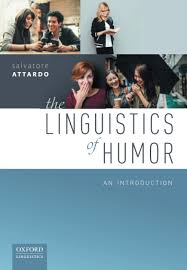
It’s the moment when it clicks and students realize that grammar has an underlying system; when they “get it.” Those moments are why I love to teach!
Salvatore Attardo, Ph.D. Director of Linguistics Graduate Programs and Professor
- Faculty

When he is not analyzing the latest humorous memes from the internet, lecturing to conference audiences world-wide, or explaining to students when to use the passive voice, Dr. Salvatore Attardo can be found driving his trusted tractor on the property he shares with his wife, Dr. Lucy Pickering, and five rescue cats and dogs. He and his wife bought a small acreage and proceeded to restore the original prairie grass on part of the land. Attardo teaches mostly in the online program in Applied Linguistics he helped start. He finds leading young scholars into doing their first piece of scientific research invigorating and exciting.
A Conversation with Dr. Salvatore Attardo
What has been your favorite course to teach?
My favorite courses to teach are the humor courses, because we may be looking at ancient Egyptian humor and realize that it is structurally identical to a Dilbert cartoon, for example. These moments of insight are awesome. The same goes for the English grammar courses, it's the moment when it clicks and students realize that grammar has an underlying system; when they “get it.” Those moments are why I love to teach.
Tell us about a project you are currently working on or recently completed.
Dr. Pickering and I just completed a book on eye tracking for students in the humanities. It was a massive job, we had to read several hundred articles and books, but we managed to hit a happy medium between being introductory and the extreme specialization of the field. Eye-tracking is an emerging methodology increasingly being used in applied linguistics to study reading, language processing, and now conversations and more. It is very “cutting edge” and there was no introductory book appropriate for our students and so we decided to write the book.
Tell us a little about yourself
I was lucky enough to be educated both in Europe and in the US; this gives me a particular breadth of interests. My best-known work is in the fields of humor studies and pragmatics. I have published over ten books and over 100 peer-reviewed articles. I sit on the board of several journals and book series. I was editor-in-chief of Humor. International Journal of Humor Research for ten years.
Educational Background
- Ph.D., English, Purdue University, 1991
- Linguistics, Foreign Language and Literature, Catholic University of Milan, 1986
Academic Positions
- Dean, College of Humanities, Social Sciences and Arts, TAMUC, 2011-2018
- Head of the Department, Literature and Language, 2007-2011
- Professor, Literature and Language, TAMUC, 2007-Present
Research Interests
- Pragmatics, Semantics
- English Grammar, Pedagogical grammar
- Social Eye Tracking
Featured Courses
ENG 595 Applied Linguistics Capstone
ENG 670 Pragmatics and Language Teaching
ENG 697 Eye Tracking
Selected Publications

- Attardo, S. and Pickering, L. (2021). Pragmatics and Its Applications to TESOL and SLA. Wiley (in press)
- Attardo, S. and Pickering, L. (2021). An Introduction to Eye-tracking in Linguistics: An applied handbook. (Forthcoming)
- Attardo, S. (2020). The Linguistics of Humor, an Introduction. Oxford University Press.
- Attardo, S. (ed.) (2020). Script-based Semantics: Foundations and Applications. Essays in Honor of Victor Raskin. Mouton de Gruyter
- Attardo, S. (ed.) (2017). Handbook of Language and Humor. Routledge Handbooks of Linguistics. Taylor and Francis.
- Attardo, S. (Editor-in-Chief) (2014). Encyclopedia of Humor Studies. Sage. 2 volumes.
- Attardo, S. (2001). Humorous Texts: A semantic and pragmatic analysis. Mouton De Gruyter.
- Attardo, S. (1994). Linguistic Theories of Humor. Mouton de Gruyter.


